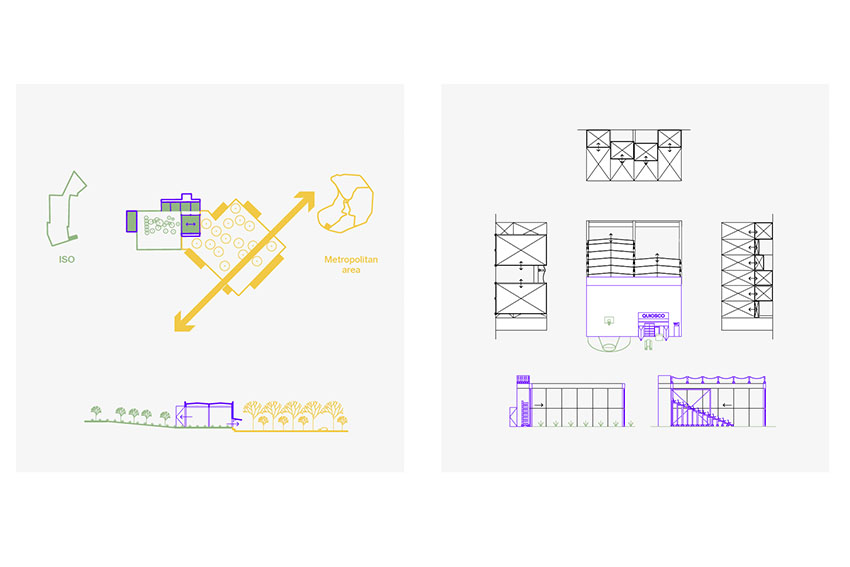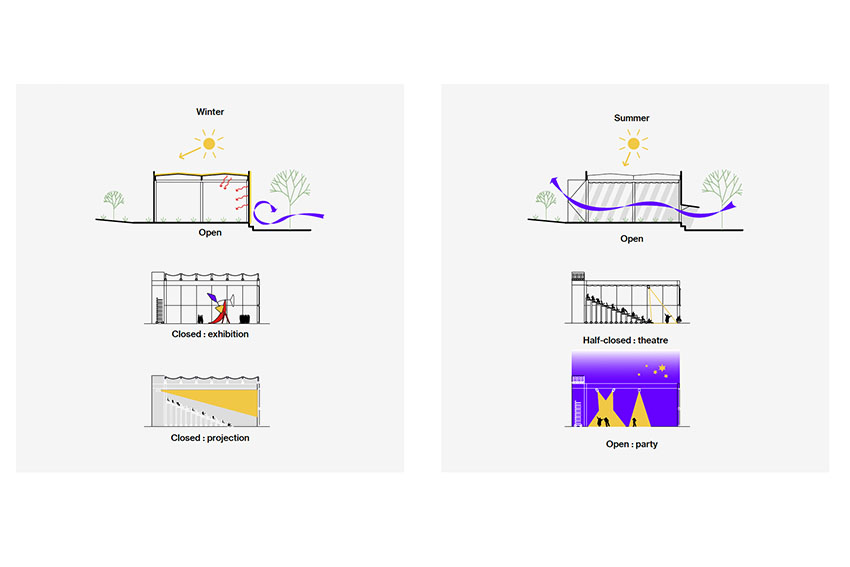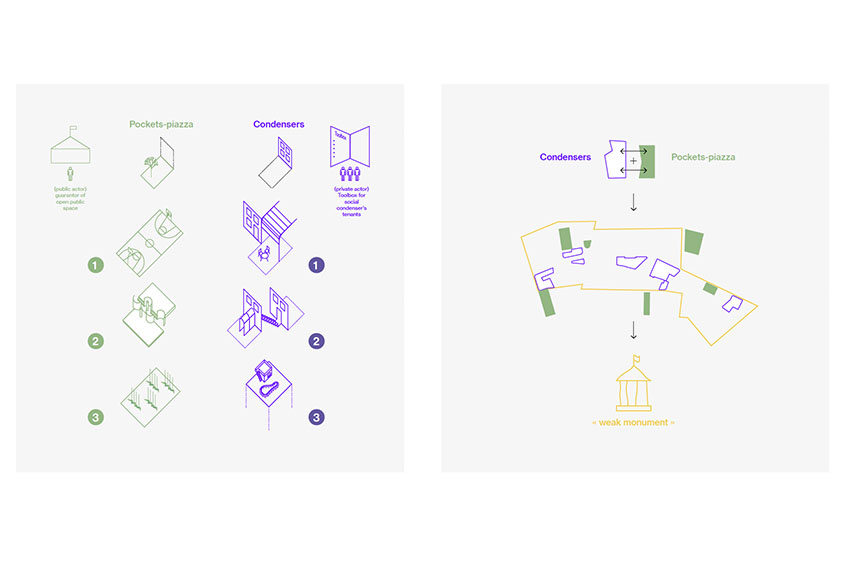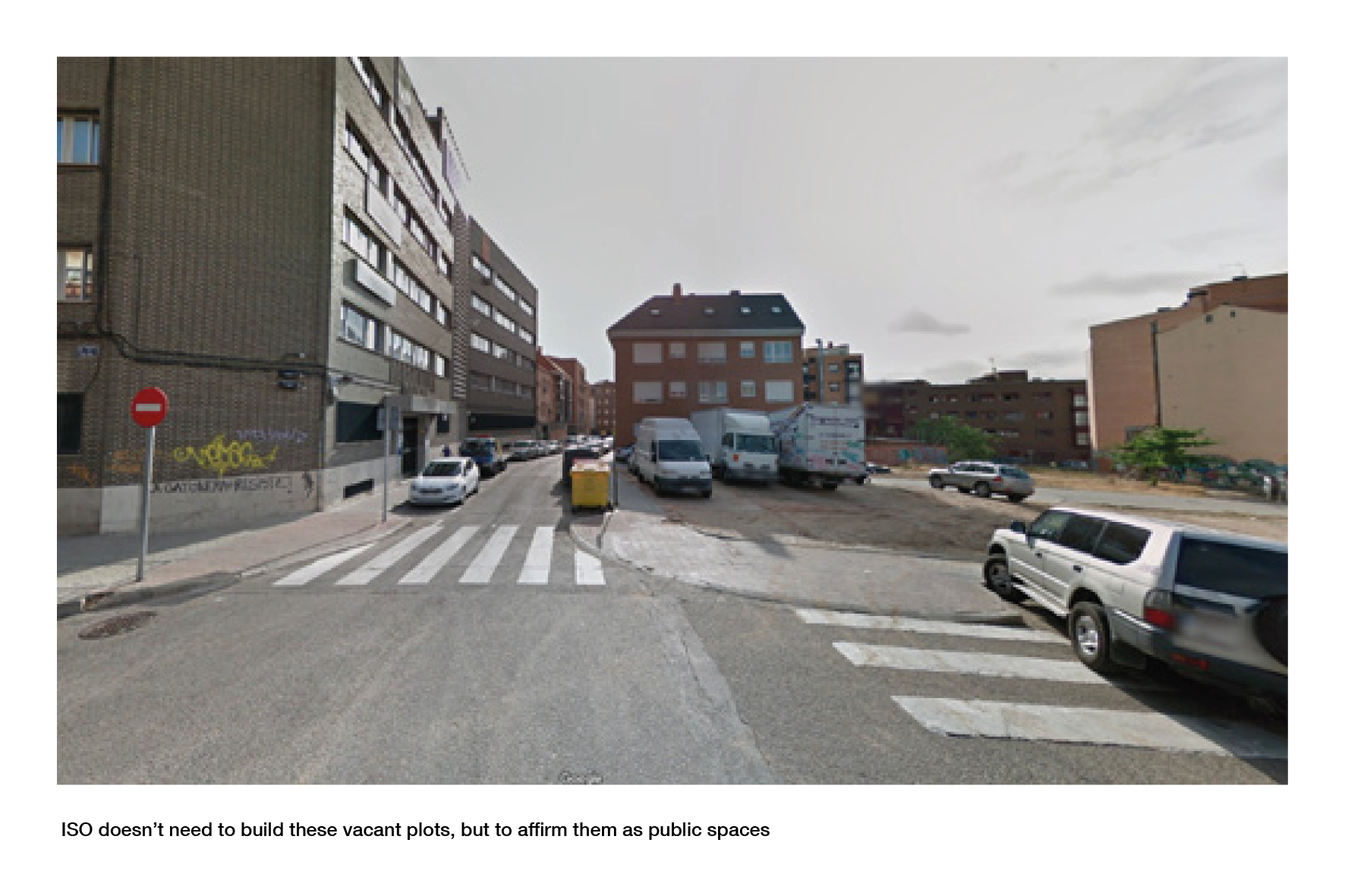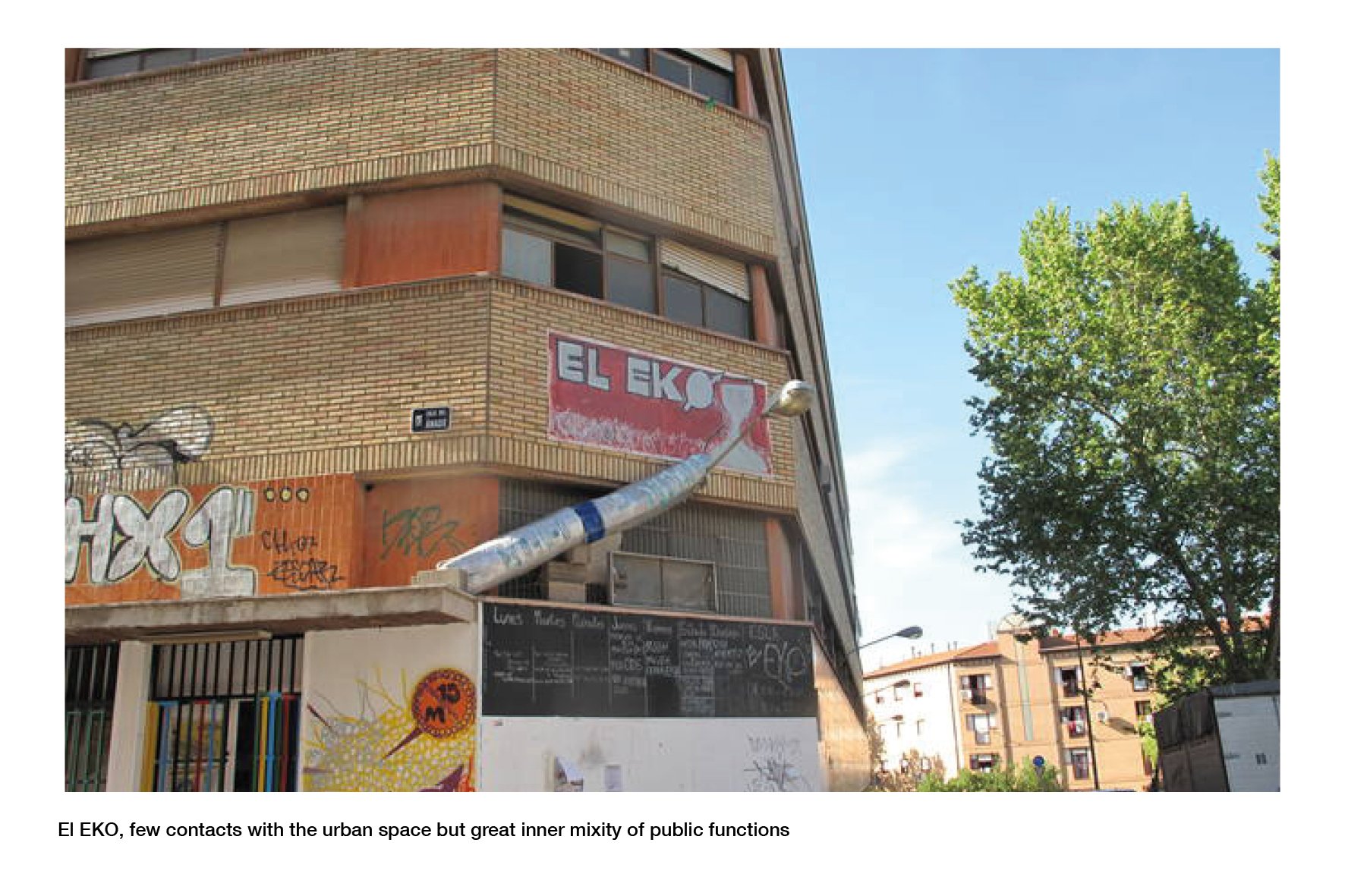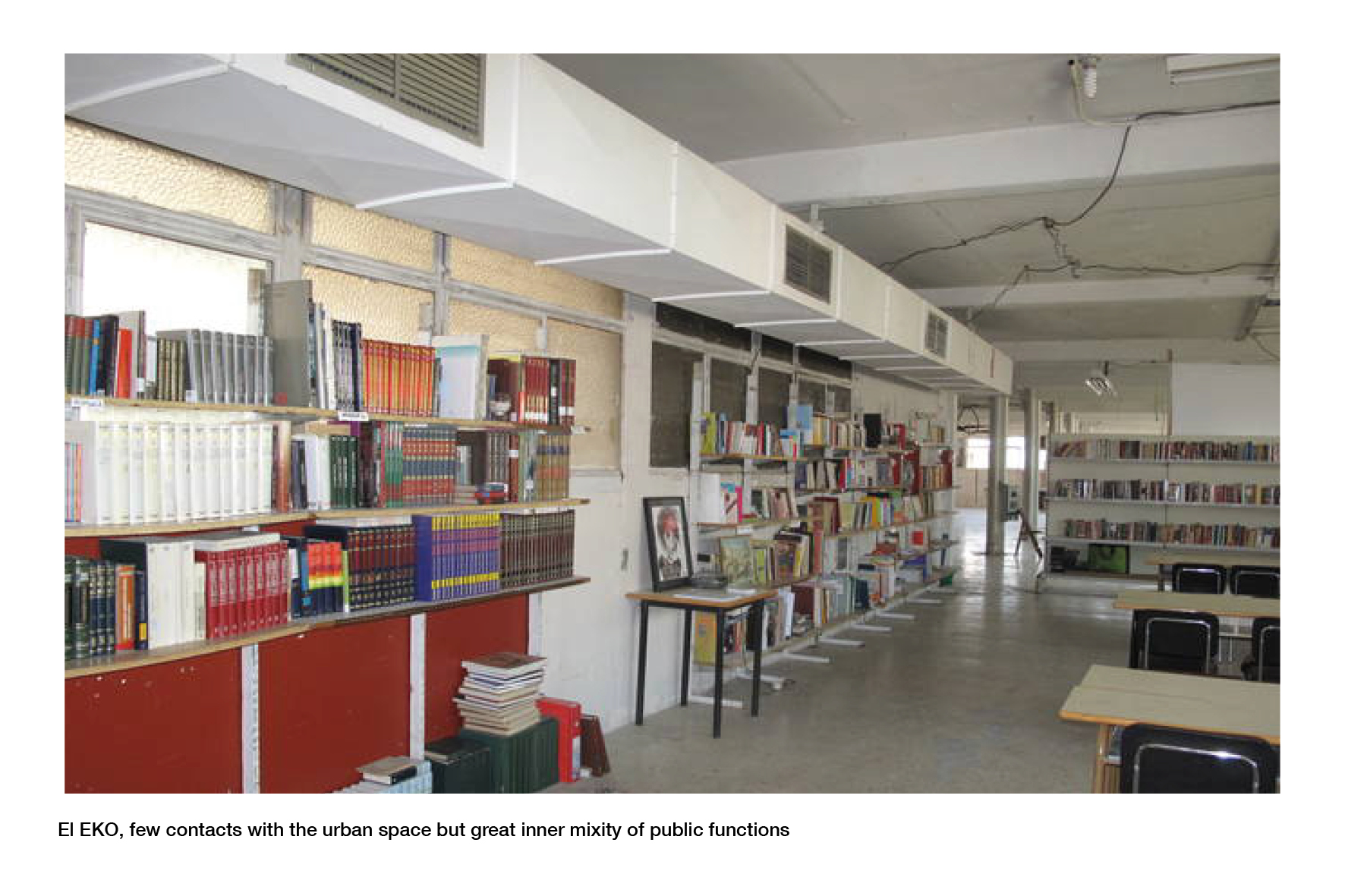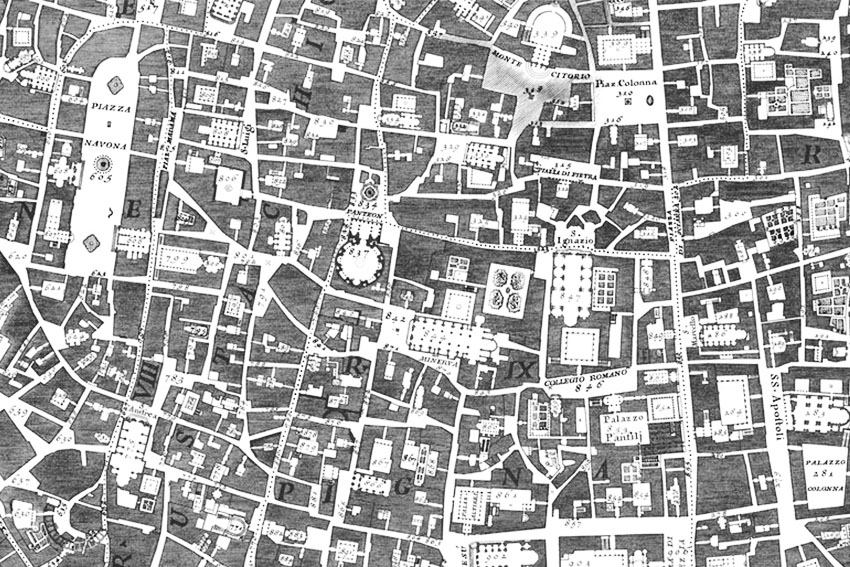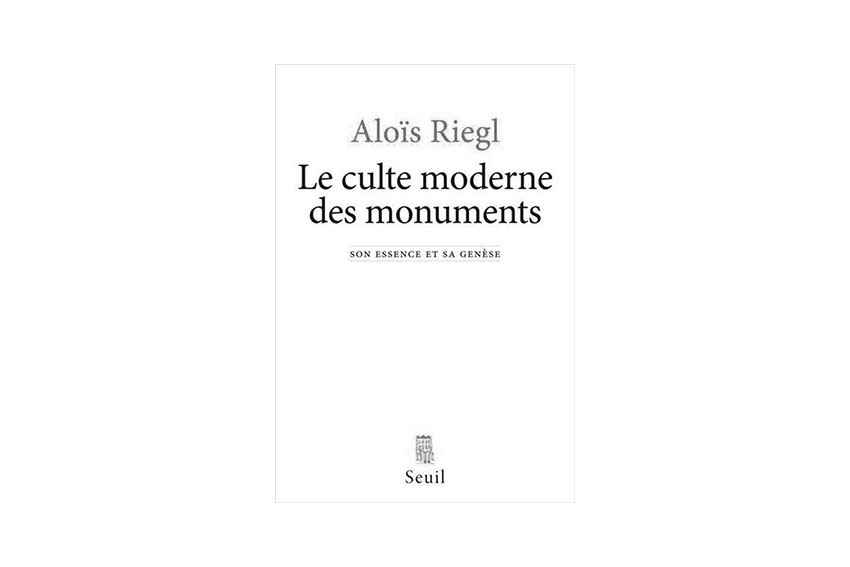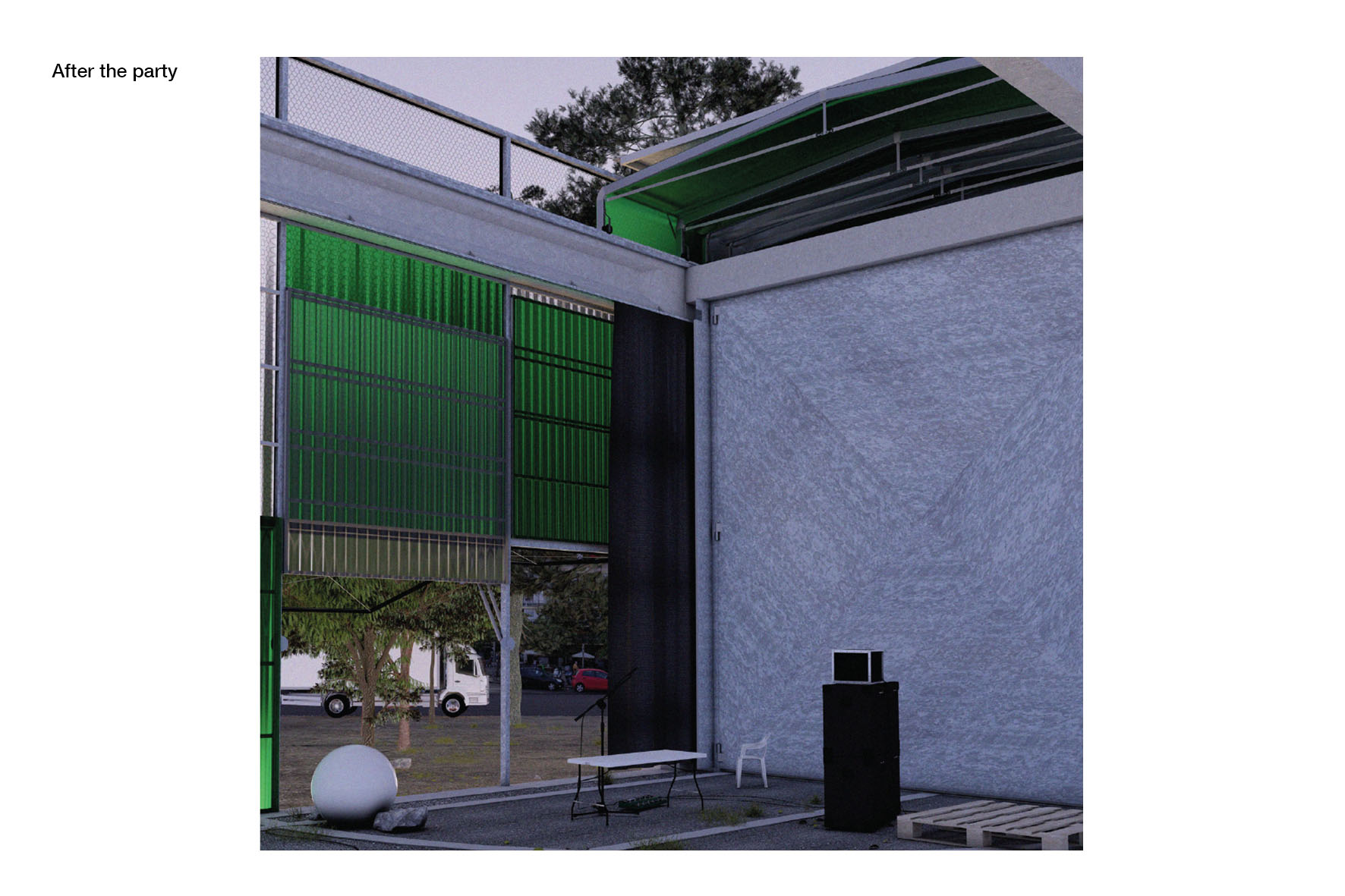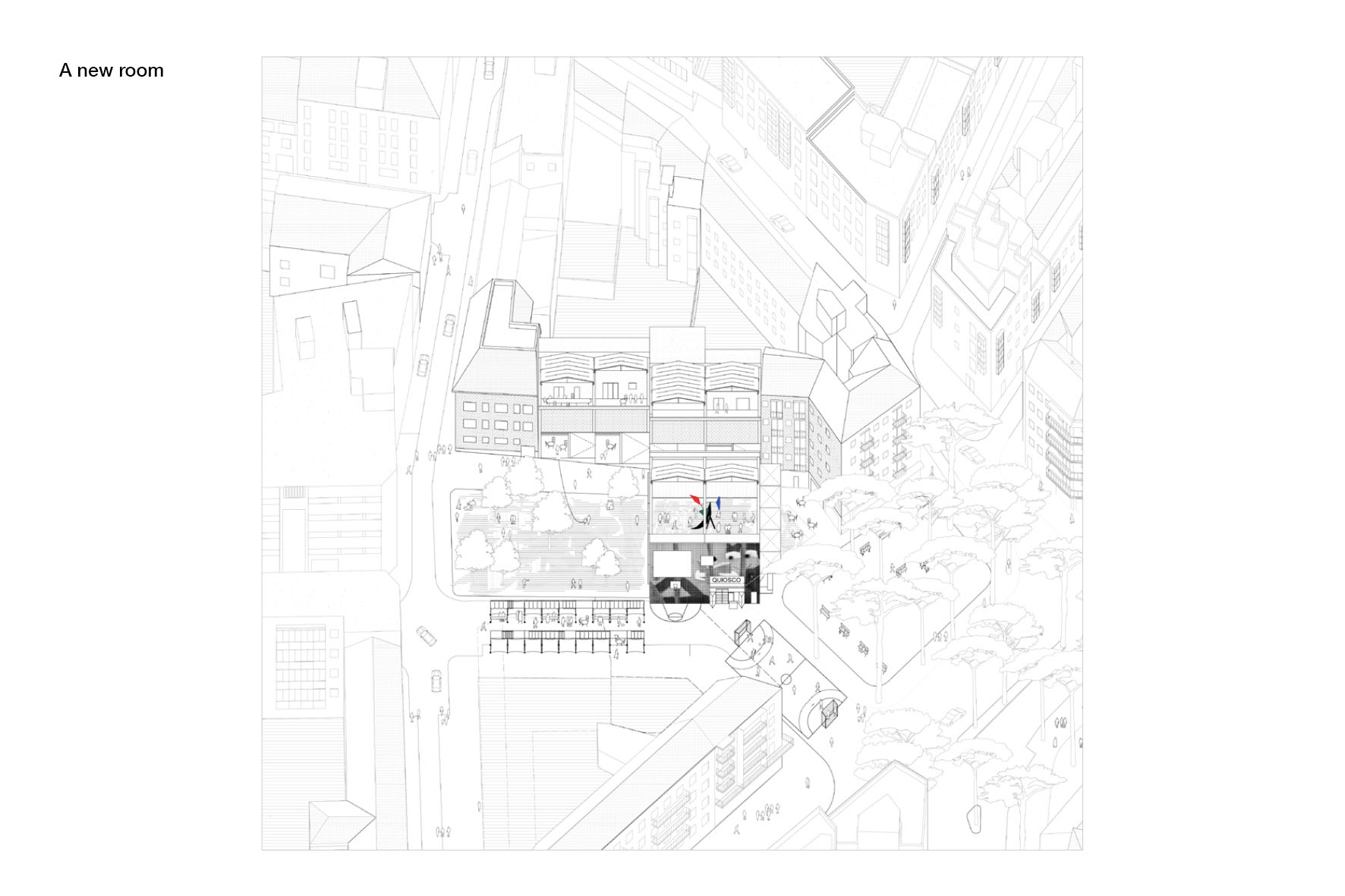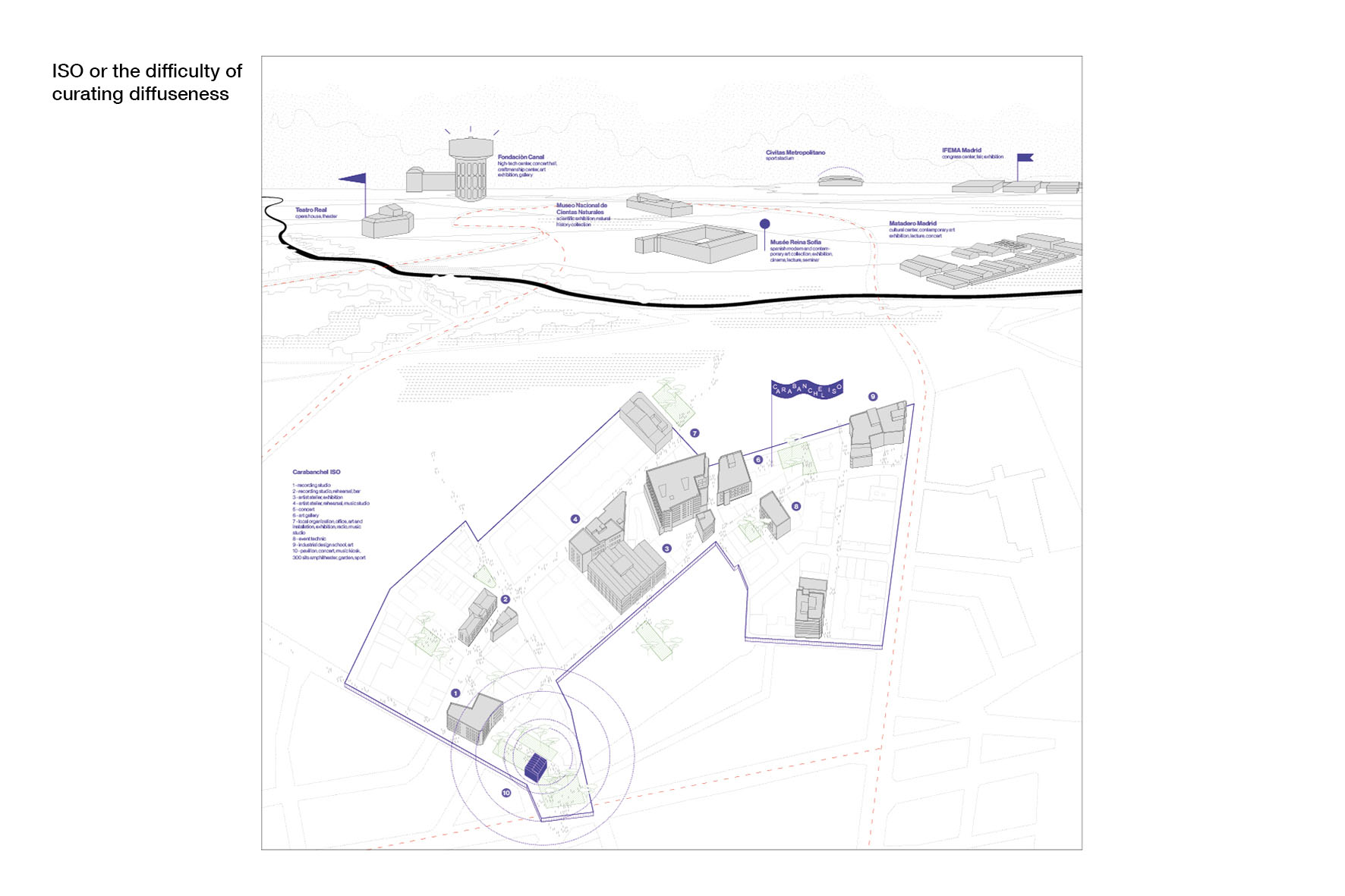ISO AS A WEAK MONUMENT
Madrid (ES) - Special Mention

TEAM PORTRAIT
VIDEO (by the team)
INTERVIEW
Click on the images to enlarge
1. How do you define the main issue of your project in relation with the theme “Living Cities Imagining architecture taking care of the milieus”? And in which way do you think your project can contribute to an ecological and/or social evolution?
Our project, through the close sight it brings on the ISO district as a whole, try to tackle the very functioning of the distrcit as a social “milieu”, with its own habits, behaviors and agencies. Instead of focusing on one new and isolated gesture we tried to first highlight the potential qualities of what’s already there and so doing, through a naming effort, bringing recognition to the silent things and ways of living we are giving ourself the task to take care of.
2. How did the issues of your design and the questions raised by the site mutation meet?
We conceived our project as series of acupuncture interventions trying to reveal already existing qualities and arising dynamics that instead of their strong potential, remain largely hidden and undervalued as stakes for the city renewal. We tried to operate a shift from the assignment, asking for a new cultural center showcasing the ongoing mutations, to a lager comprehension of the district as being a cultural event of it’s own, that only needs to be accompanied.
PROJECT:



Having for some of us met each other during our architecture master, focused on a non-linear and fragmented perception of urban phenomenon, we’re quite intrigued by those projects’ attitudes trying to convene the scattered and discrete, recent and old voices, of whom and what, put in a new fashion, could bring new meanings in situations that banality would not have allowed one to expect. Alongside Rossi’s Citta Analogua, we worked with collages of types and memories; here and there we paste some souvenirs of spaces we saw in others places, in other times, yet well latent in what we are experiencing here and now.
SITE:



By proposing a shift from a project entirely led by the public actor as the main stakeholder, to scattered low-tech interventions led by the cultural condenser’s organizations, and for wich the city only act as a financial and technical support, we tried to set a new frame for collective design and process-oriented ways of making.
REFERENCES:

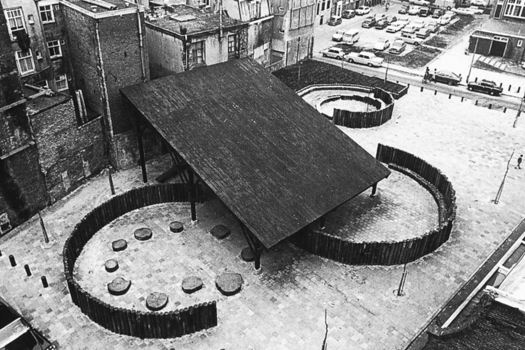

We are a collective of friends who initially met during our university studies, collaborating on various projects during that time.
6. How could this prize help you in your professional career?
Winning this prize could boost our professional career by providing visibility and potential collaborations, enabling us to further contribute to sustainable and socially responsible architecture.
TEAM IDENTITY
Legal status:
Team name:
Average age of the associates: 27 years old
Has your team, together or separately, already conceived or implemented some projects and/or won any competition? if so, which ones?
No.
WORKS:



